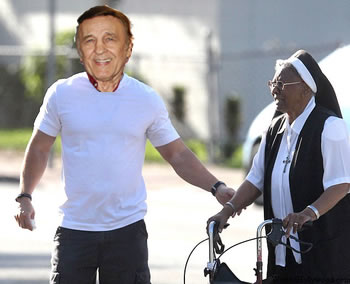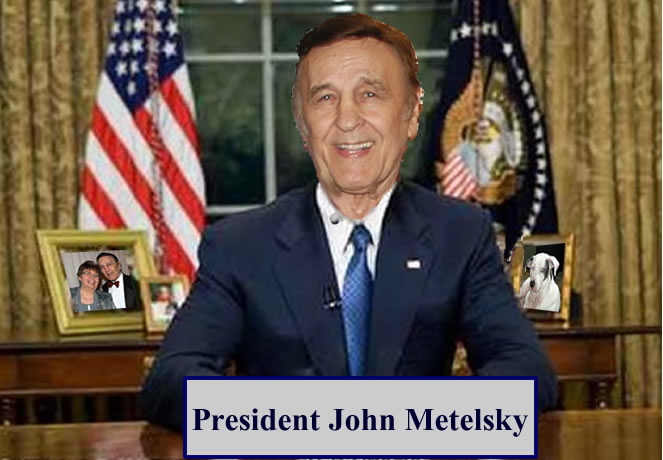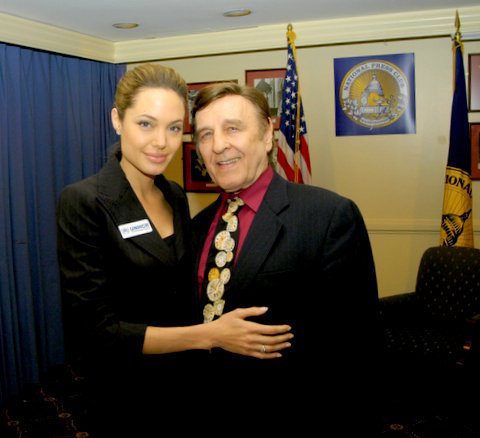Today is the birthday of one of our favorite members of the Skere9 Gallery of Stars, John Michael Metelsky. We thought we’d take this illustrious occasion to share with the public, for the first time, some rare photos of John going about his typical day-to-day duties.
Here’s John rescuing a kitten from a burning building:

Here he is helping a nun cross a street:

And here he is filling in for a friend on the job:

As you can see, John is a man of many talents, some known to many, some unknown to everyone, including himself.
NOW … in all seriousness, John is one of the most gracious people you will ever meet. He’s generous in spirit, and knows how to give just the right word of encouragement at the right time. He loves to kid around and is one of the funniest and most jovial people you will ever meet, but when he gets serious, he’s modest about his own remarkable accomplishments and skills. Don’t let that fool you – he is a consummate professional at the top of his field, which is photography and photojournalism. He knows just how to casually evoke the right mood from the right people at the right time. Most people might not even notice when, after he’s cracked the right jokes or somehow put his subjects at ease, and into a happy or laughing state, – snap – he grabs the perfect photo at the most opportune moment, and unless you’re paying close attention, you might not even know it – not until later, when the finished photo emerges, showing off his subjects uniquely, and reflecting the brilliance of his work. John’s the greatest at what he does.
Plus – he’s easy going, fun to hang out with, and remarkably well-read. He’ll quote lengthy passages from classic prose and poetry, at just the right time, to underscore a point or maybe just for a light-hearted or whimsical laugh.
And he’s lucky enough to have the most adorable wife and great children who he obviously loves a great deal. John’s a class act, and I’m grateful to be his friend.
So please join us in wishing John a very happy birthday!
For he’s a jolly good fellow!
Happy birthday, John!
P.S. Angie says happy birthday, too. (And no, THIS one is not Photoshopped).

Photo taken March 8, 2005. Copyright © 2005. John Michael Metelsky, Used with permission.





 I’ve always thought it was silly that we tally Olympic gold medals by country, with no adjustment to account for each nation’s population. Is it fair to compare the more than 300 million people who live in the United States of America with, for example, tiny little Grenada, with a population barely over 100,000? It stands to reason that larger countries, on average, will produce more gold medal contenders than smaller countries, it’s just the simple law of probability.
I’ve always thought it was silly that we tally Olympic gold medals by country, with no adjustment to account for each nation’s population. Is it fair to compare the more than 300 million people who live in the United States of America with, for example, tiny little Grenada, with a population barely over 100,000? It stands to reason that larger countries, on average, will produce more gold medal contenders than smaller countries, it’s just the simple law of probability.


